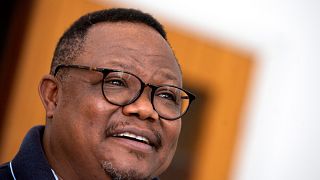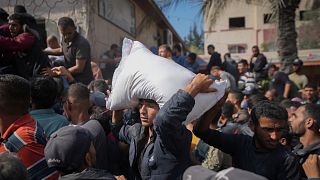Africa
International rights organization, Amnesty International, has hailed the progress made by countries in sub-Saharan Africa to abolish the death penalty as a form of punishment.
20 sub-Saharan countries have since 1981 abolished the death penalty. Guinea in 2017 became the 20th state in the region to abolish the death penalty for all crimes.
Amnesty International’s Secretary General Salil Shetty described the progress made in sub-Saharan Africa as a ‘beacon of hope’.
“The progress in sub-Saharan Africa reinforced its position as a beacon of hope for abolition. The leadership of countries in this region gives fresh hope that the abolition of the ultimate cruel, inhuman and degrading punishment is within reach.”
Burkina Faso and Chad took steps to repeal the death penalty with new or proposed laws while Kenya abolished the mandatory death penalty for murder.
The organization recorded a drop in the number of executing countries across sub-Saharan Africa, from five in 2016 to two in 2017, with only South Sudan and Somalia known to have carried out executions.
Nigeria according to the rights group, put to death at least 600 people between 2015 and 2016 with over 2,200 people currently on death row.
“People suspected of terrorism are often sentenced to death and that is disturbing. And the work we do is to say that the death penalty is against human rights and that some sentences are degrading and outdated,” Kine Fatim Diop of Amnesty International’s West Africa office told Africanews.
Botswana and Sudan resumed executions in 2018, but Amnesty says the move should not overshadow the positive steps being taken by other countries across the region
“With governments in the region continuing to take steps to reduce and repeal the death penalty well into 2018, the isolation of the world’s remaining executing countries could not be starker,” Shetty said.
The Gambia has also signed an international treaty committing the country not to carry out executions and moving to abolish the death penalty.
President Adama Barrow established an official temporary ban on executions in February 2018.












01:16
Africa mourns Pope Francis, a voice for peace and justice
01:14
ECOWAS Meets in Ghana to Tackle Member Withdrawals
Go to video
EU foreign ministers discuss Ukraine, Syria and EU-African relations in Luxembourg.
01:58
Latin American leaders urge unity amid U.S. trade and migration tensions
Go to video
Paris hosts the 4th edition of African Cinema Days featuring Côte d'Ivoire
Go to video
DRC: UN report highlights human rights violations linked to M23 group's offensive